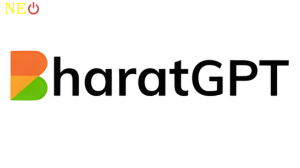Mukesh Ambani, the visionary corporate mogul who leads Reliance Industries, has made a huge investment in artificial intelligence, ushering in a new era for India's technology landscape. In collaboration with the famous IIT Bombay and a coalition of eight other prestigious Indian Institutes of Technology, Ambani's brainchild, Seetha Mahalaxmi Healthcare (SML), has revealed a pioneering venture known as “Hanooman AI.”
This ground-breaking undertaking introduces "BharatGPT," a pioneering effort aimed at democratizing AI across India's diverse language tapestry. At its core, BharatGPT uses large language models (LLMs) to accommodate to the intricacies of 22 different Indian languages. By doing so, it not only enables people across the country to interact with cutting-edge AI technology, but it also ensures inclusivity in an increasingly digitalized society.
The significance of this undertaking goes far beyond technological innovation; it represents a commitment to closing the digital divide and promoting inclusive growth. Mukesh Ambani and his team at BharatGPT are not only changing the AI environment, but also paving the way for a more connected, empowered, and linguistically varied society.
In essence, Hanooman AI and BharatGPT demonstrate India's capacity to lead the global AI race while preserving its cultural history and linguistic variety. As the world waits in expectation, it is obvious that this collaborative endeavor represents a significant step toward a future in which technology acts as a catalyst for societal growth and inclusivity.
Hanuman will have a speech-to-text capability:
Ganesh Ramakrishnan, the acclaimed chairman of IIT Bombay's Computer Science and Engineering Department, announced a significant advancement in the field of Large Language Models (LLMs). In a departure from convention, he revealed that the upcoming LLM, popularly known as "Hanuman," will include cutting-edge speech-to-text features. Ramakrishnan noted that Reliance Jio is positioned to further transform the environment by creating tailored models to address the specific needs of individual users.
Furthermore, Reliance Jio's ambitious aspirations go beyond LLM development. The business is working hard to develop the Jio chip Brain, a unique platform that will utilize artificial intelligence across its enormous network, which serves around 450 million subscribers. This undertaking is especially important in a country with 1.4 billion inhabitants and millions of illiterates.
Akash Ambani, Chairman of Jio Infocom, recently hinted at the company's entry into the television industry, implying the possibility of a proprietary operating system for Jio's television offerings. Beyond that, Reliance Jio intends to diversify its portfolio by introducing innovative products and services in commerce, communication, and devices.
The Future Of Indian AI
Despite the daunting obstacles it faces, Hanooman AI stands out as a beacon of development in the Indian artificial intelligence environment. Its unique emphasis on local languages, dedication to open-source ideals, and varied multimodal capabilities represent a watershed moment with far-reaching ramifications for individuals, enterprises, and government initiatives across the country.
Hanooman's commitment to incorporate local languages demonstrates its inclusion and understanding of India's linguistic variety. By emphasizing accessibility in vernacular languages, it democratizes AI technology, allowing a wider range of people to engage with and profit from its applications. This strategy not only promotes more inclusivity, but it also creates new chances for innovation and economic growth across a variety of sectors.
Furthermore, Hanooman AI open-source framework promotes transparency, collaboration, and community-driven development. By making its tools and materials openly available, it fosters a culture of knowledge sharing and co-creation, allowing a wide range of stakeholders to contribute to AI progress. This democratization of AI encourages a more robust environment of innovation, allowing ideas to flourish and evolve free of private constraints.
Furthermore, Hanooman's multimodal capabilities constitute a paradigm change in AI technology, allowing for seamless integration of various data kinds such as text, speech, and images. This comprehensive approach not only improves the accuracy and resilience of AI systems, but also opens up new avenues for interaction and engagement. From personalized customer experiences to data-driven decision-making, Hanooman's multimodal capabilities have the potential to transform a wide range of sectors.
Mukesh Ambani joins the list of world's top 10 richest people
Mukesh Ambani, the chairman of Reliance Industries, has joined the list of the world's top ten richest persons. According to Forbes' Real Time Billionaires List, Mukesh Ambani's net worth has now risen to $114 billion (about Rs 9.45 lakh crore).
Mukesh Ambani, Chairman of Reliance Industries, is ranked tenth on this list, surpassing Google co-founder Sergey Brin.









